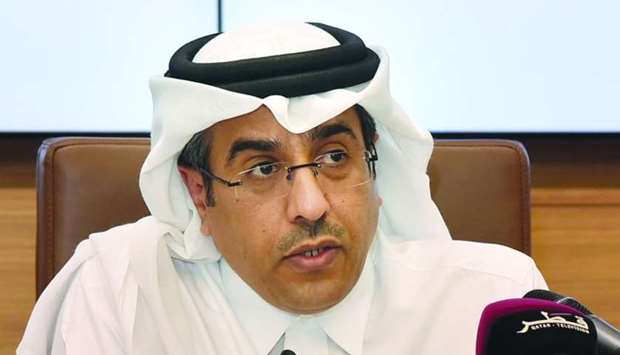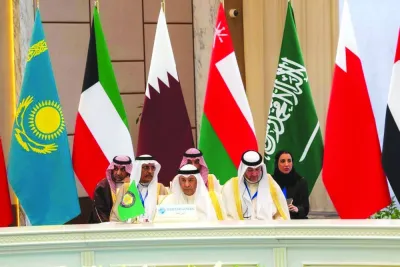HE the Chairman of the National Human Rights Committee (NHRC) Dr Ali bin Smaikh al-Marri has called on the United Nations, international organisations and parliaments to speed up the accountability process with regard to the violations of human rights committed by the siege countries that have affected the people of the Gulf.
He also called for accelerating the process of redressing the victims of the siege on Qatar, especially in light of the country's intention to take legal action against the United Arab Emirates before the Court of Justice (ICJ) for its continuing violations of human rights against Qatar and its citizens. Qatar is also calling on the ICJ to enforce compliance by the UAE with its obligations under international law and to take immediate action to protect Qataris against any future irreparable damage.
This came in a statement made by HE Dr al-Marri following a series of meetings held in Geneva, including Prince Zeid bin Raad, High Commissioner for Human Rights of the United Nations, Beatrice Chamorro, Chairperson of the Special Procedures of the Commission, Valentin Zellweger, Swiss ambassador to the United Nations in Geneva, and Karl Haligard, head of the European Union delegation to the UN.
During the meetings, Dr al-Marri reviewed the latest developments as a result of the siege on Qatar and its repercussions on human rights, informing at the same time Qatar's move to sue the UAE in order to expedite the lifting of the unjust blockade on the victims of the siege including citizens and residents of Qatar.
He stressed that such measures require serious and decisive positions by international organisations that believe in human rights and strive to protect and promote those rights.
The High Commissioner for Human Rights was handed over the report of the National Human Rights Committee, which documented general violations by the siege countries.
The NHRC chief noted that more than a year after the Gulf crisis, violations continue to be committed by the blockading countries.
"The Saudi authorities have continued to violate the right to religious practice and deprived thousands of citizens and residents of Qatar of performing the Umrah of the month of Ramadan, and stopped the electronic registration for those wishing to perform Haj (pilgrimage) for this season. "
He added that the Saudi authorities put obstacles to prevent citizens from performing their rituals in a flagrant violation of this right, which is stipulated in international human rights instruments.
HE Dr al-Marri, said that the family ties between the citizens of Qatar and those of the other GCC countries have been torn apart and they still hopeful of international human rights organisations restoring their protection.
He pointed out that more than a year has passed since the siege was imposed and children are still deprived of their mothers and fathers, husbands are separated from their wives and cousins from each other, stressing that the blockading countries have enforced this separation of families and relatives.
HE Dr al-Marri stressed the need for urgent intervention by the international community to resolve the Gulf crisis, pointing out that reconciliation and peace between countries is required to achieve security and stability of civilians. He said political disputes should not infringe on rights of communities and individuals.
He pointed out that international organisations are required to play bigger roles and enforce the law to make the blockading countries to fulfill their international and regional obligations to respect human rights. Dr al-Marri called for more steps than just condemnation and denunciation of such practices which all the missions of international organisations and parliaments did when they visited Qatar during a year of blockade, and unanimously agreed that these are arbitrary and unilateral actions and constitute gross violations of human rights.
HE al-Marri thanked Prince Zeid bin Ra'ad Zeid al-Hussein, the United Nations High Commissioner for Human Rights, for his efforts during his term of office which is due to end in August, praising the role he played to promote and protect human rights in the world and the Arab region.
HE al-Marri said that the mandate of the High Commissioner was extraordinary and witnessed very complex events in the region, pointing out that he dealt with these complexities with all the independence and credibility dictated by ethics and professionalism, stressing that the positions of Prince Zeid bin Ra'ad Zeid al-Hussein were characterised by neutrality.



